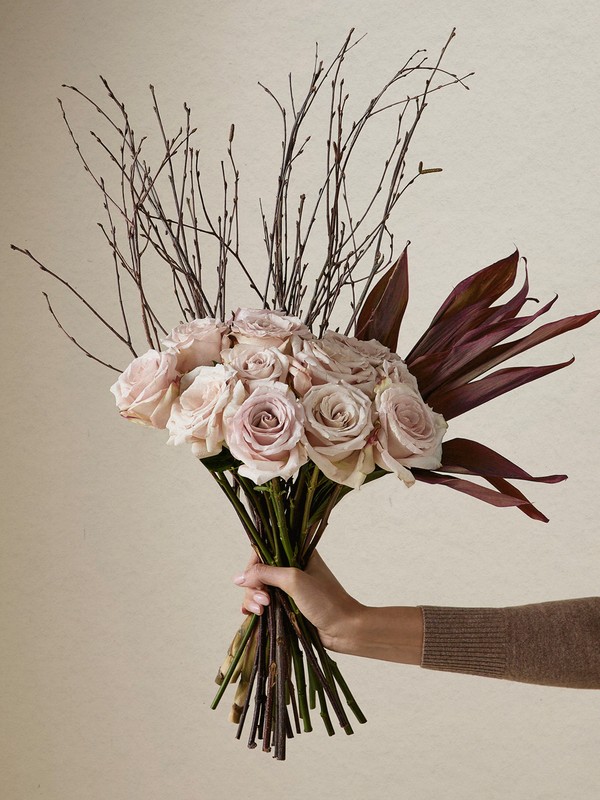A Guide To Millennial Etiquette
Can you debate political issues with family members if you know you have different opinions?
If you are amongst family then it is absolutely fine to have a conversation and even a debate about a contentious issue like Donald Trump, Brexit or LGBTQ rights. That is, of course, if you are skilled enough to debate within the confines of manners and decorum! Many people struggle enormously with debating appropriately because they forget one important rule: you must listen just as much as you talk. If you are going into the conversation with one aim, and that is to shout down all others, then there really is no point. If, however, you are willing to listen and hear the views of your family, no matter how abhorrent they may be to you personally, then go ahead. If things are becoming heated, then it is fine to utilise the ‘I respect your opinions’ tactic and move the conversation on.
If you’re out with a friend, is it that bad if you look at your phone occasionally?
If you simply must look at your phone, then do so before dinner begins or before your companion arrives then put your phone away. It’s incredibly off-putting to attempt to socialise with someone who is constantly picking up their phone. It becomes a battle to see how long you can engage their attention before their phone claims it once more!
Can you still post a picture on Instagram if someone in it hates it?
We all like to have nice pictures of ourselves on social media, but if someone else who is in the snap has expressly told you that they do not like the picture, then it would be rude to go ahead and post it knowing that they dislike it. You can still enjoy and appreciate the picture without posting it on social media.
You’re a vegan - should you tell your dinner host in advance?
We can feel extremely awkward about raising dietary needs when we are a guest at someone’s home, but the key is to do so in advance. You should advise your host when you accept the invitation to give them time to prepare for your dietary needs. If you are newly vegan or flexitarian then give your host as much notice as possible, at least one week. As a courtesy, do ask if you can do anything or take anything.
You have IBS, how should you tell your dinner host of your food issues?
Even if you have a gastrointestinal issue, you can make them aware of the problem without going into intimate detail about your bodily functions with your host. If you know there are certain foods you cannot eat without becoming unwell, then simply make your host aware of this when you accept the invitation. Thank them for their invitation and say that unfortunately you are unable to eat X, Y or Z. At this point, menu plans are still likely to be in the planning stages, and this allows your host to consider their choices.
If you’re a bridesmaid, but the hen party is too expensive, what should you do?
The price of hen parties can easily spiral out of control. If the plans have got too far out of your budget, then that’s a conversation that you must have with the bride in person and on a one-to-one basis. Invite her out for a coffee and reiterate how thrilled you are to be a bridesmaid, and how excited you are to be a part of her wedding. Then, explain that money is a little tight and that it is impossible for you to come to, say, a weekend abroad but ask whether she might also consider an additional celebration such as an afternoon tea or drinks with a smaller group of friends that you could attend or host. If you are close enough to have been asked to be a bridesmaid, then most brides will be amenable to this and may even consider modifying the original hen party plans, so they are accessible to everyone.
A friend of a friend follows you on Instagram - do you have to follow back?
If you are hesitant about following someone back on Instagram, there is usually a good reason. Either you don’t know them well enough, or you know them quite well and really don’t wish to further the association. Either is an acceptable reason to decide to not follow them back.
How professional do you need to be in work emails?
At work it is useful to imagine yourself as a brand, and everything you do and say conspires to create your brand, from what you wear to the comments you make and the way you write your emails. How you write your emails should reinforce your personal brand. For example, it is quite common now for people to have professional relationships that are conducted entirely by email with no face to face or even verbal contact at all, and it can be easy to become too causal in emails, particularly with people you email frequently. The entirety of how you are perceived professionally in this case is through your email and the tone you use. So, think about the image you want to portray and make the tone fit. For example, if you are a creative then this can come across in the words you use and the tone might be more conversational. If you are a lawyer then your tone would be quite different. Except in extremely formal situations, it is acceptable to use first names and sign off with some form of regards and your name.
Can you still use colloquialisms?
Think again about what is appropriate for your industry, your professional role and how you wish to be perceived. It is still possible to give a friendly tone whilst being professional. I would avoid text speak, so acronyms like ‘OMG’ or ‘TMI’, and spell words out in full (so no ‘wanna’ instead of ‘want to’ and so on). The difficulty with using colloquialisms and slang is that you just don’t know what is going to push someone’s buttons and really annoy them. You might think ‘hiya’ followed by a row of exclamation points is friendly and fun, whilst the recipient will probably stop reading there and then.
How quickly do you need to reply to texts?
A polite timeframe in which to reply to a text message is 24 hours. Any longer and it would be expected that you should give an account of your tardiness in replying, such as “I’m sorry for the late reply, I was working late last night”, or something along those lines.
What's the maximum amount of time you can get away with taking pictures of your lunch?
That really depends on who you are dining with! If their appetite is more for eating the meal sat in front of them than for taking pictures of it, then you spending time doing this can be perceived as rude. Just put the phone away, or at the very least ask if they mind you taking a quick photo of your lunch. And it should be that: quickand taking less than 60 seconds. If, on the other hand they are snapping away too, well you can indulge unfettered.
Should men still be holding doors open for women?
Yes, absolutely, it is correct etiquette for a man to open a door for a woman just as a woman would hold the door for a man. Etiquette is really basic human kindness and treating others as you would wish to be treated, and we shouldn’t confuse it with equality. Manners and etiquette are relevant to everyone, regardless of age or gender.
If you’re unsure what gender (if any) someone goes by, how should you approach this with them?
It is usually best to allow them to broach this subject, as and when they feel comfortable doing so. Direct questioning of this sort is akin to asking someone about their sexual proclivity or how much they earn - it can be perceived as tactless or invasive. Far better to ask about them, and should they wish to disclose this type of information, they will do so.
At a bottomless brunch, what's the correct amount of prosecco to drink?
Two glasses should be your maximum.
Is it ever ok to eat off someone else's plate?
This is only ever acceptable if you know someone intimately, such as if they are a member of your immediate family with whom you are in regular, close contact, and even then, it is polite to ask first. Taking a bite from someone else’s plate that you don’t know intimately, even using your own cutlery, is akin to inviting yourself to their home or plopping yourself down in their lap. It’s crossing boundaries that you really shouldn’t cross.
If you find yourself offended by something someone says, should you tell them?
There are ways of tactfully expressing surprise or displeasure at what someone has said. You might say something like, “That’s an interesting way of looking at things” or “I really wouldn’t see things quite like that”. We don’t communicate perfectly all of the time. Things can come out wrong or we can perceive them in a completely different way to what was intended. Tactful statements allow you to open a discourse on the topic, but also allow your conversational partner to revise and elaborate on their statement. Often, it can merely be that you have misinterpreted their intention.
If your friend is doing something like Dry January, is it still ok for you to have a drink?
There is no black and white answer to this. A supportive friend might say they will join them in a soft drink, or they might equally congratulate them on their good work and order an alcoholic drink for themselves whilst settling in to hear the no doubt long and fascinating tale of the trials and tribulations of Dry January!
Find out more at OfficialPaulRussell.com
DISCLAIMER: We endeavour to always credit the correct original source of every image we use. If you think a credit may be incorrect, please contact us at info@sheerluxe.com.






